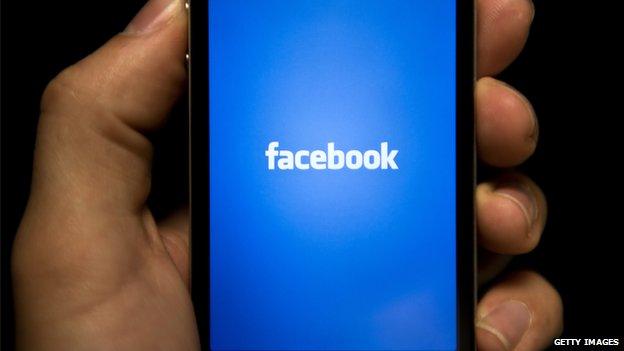Facebook experiments with vanishing posts
- Published

Facebook has been attempting to rival Snapchat by releasing photo-messaging apps with automatic deletion
Facebook is following in the footsteps of messaging app Snapchat by testing a feature that allows users to schedule the automatic deletion of their posts.
The social network said the option, which offers expiration settings ranging from one hour to seven days, was "a small pilot" for its iOS app.
Facebook often tests new capabilities.
It faced criticism in June for one experiment that "manipulated" the content of nearly 700,000 users' news feeds, to gauge emotional responses.
The BBC understands that the expiration option was introduced after Facebook users expressed an interest in automatically deleting posts which are only relevant for a limited amount of time.
Posts for which an expiration time is chosen cannot be subsequently shared by other users.
The option is currently limited to users in New Zealand, where Facebook and other tech companies have tested products and services in the past.
Chasing Snapchat
Snapchat, the popular ephemeral messaging app that Facebook reportedly tried to buy for $3bn (£1.8bn), has mushroomed in the three years since its founding in 2011 - a growth rate that has sent its rivals clamouring for similar success.
Time-limited messaging is increasingly popular among teenagers, the very demographic coveted by many large tech firms.
In June, Facebook unveiled Slingshot, a photo-messaging app in which images received from friends must be unlocked by "slinging" a different photo back to the original sender.
All messages are deleted once sent and users can scribble or type over their photos.
One month later, the Facebook-owned Instagram also revealed an app that allows users to send photos which are deleted after being viewed by the recipient.
Is Facebook allowing you to set an expiration date for your posts? If so, tell us what you think by tweeting @BBCTech
- Published30 July 2014

- Published18 June 2014

- Published25 June 2014

- Published1 May 2014

- Published7 March 2014
